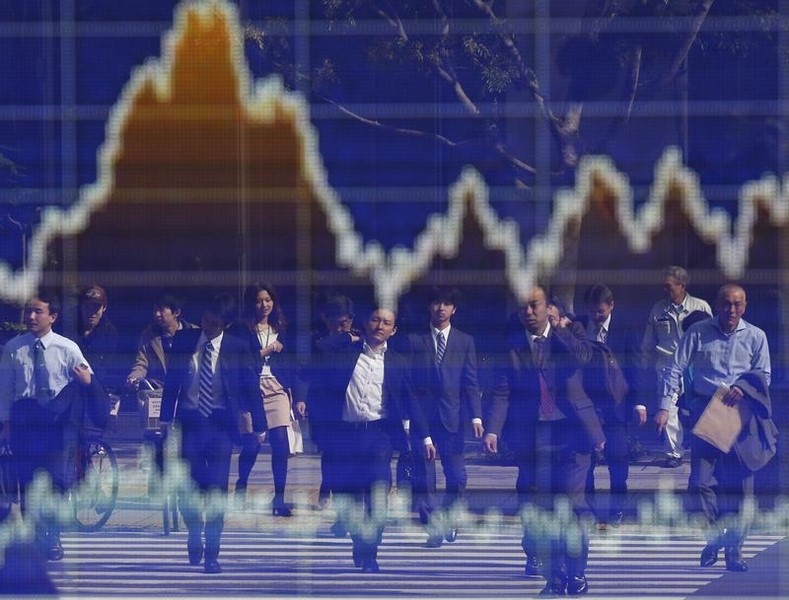By Marc Jones
LONDON (Reuters) - The Swiss franc tumbled on Thursday as its central bank slapped a charge on deposits, wary of a flood of money exiting Russia and the likely pressure from the euro zone if the ECB starts full-scale money printing early next year.
European shares opened sharply higher after an upbeat assessment of the U.S. economy and a promise to be patient in raising rates by the Federal Reserve had seen U.S. stocks enjoy their strongest session of the year so far.
The jitters of recent days also calmed a touch as Russia managed to stabilize its rouble ahead of an end-of-year address from President Vladimir Putin, and oil prices steadied after one of the most turbulent spells on commodity markets in decades.
The Swiss National Bank's (SNB) surprise move to introduce a charge on deposits was accompanied by a cut in its main rate band and saw the franc fall to its lowest since mid-October against the euro and to its weakest against the U.S. dollar since May 2013
"Over the past few days, a number of factors have prompted increased demand for safe investments," the SNB said in a thinly veiled reference to the turbulence on Russian financial markets.
"The introduction of negative interest rates makes it less attractive to hold Swiss franc investments."
European stocks (FTEU3) were up over 1.3 percent in early trading, tracking Wall Street's jump and a rally in Asia overnight.
London's FTSE (FTSE), Frankfurt's DAX (GDAXI) and Paris' CAC40 (FCHI) were up 0.5, 1.7 and 1.7 percent respectively and euro zone periphery bond yields nudged lower as the appetite for risk picked up.
There was a hint of caution, although not much, in Greek stocks (ATG) and bonds
The government needs to get its candidate through in order to avoid snap national elections early next year. Polls suggest they would be won by the leftist Syriza party, which promises to renegotiate the international bailout accord Greece still needs to keep its finances afloat.
ROUBLE TROUBLE
Russia's rouble gave back some of Wednesday's recovery as Putin's end-of-year news conference started. It was expected to be dominated by what a government minister called a "perfect storm" hitting the economy.
The rouble was more than 1.5 percent weaker on the day
In Asia, Japan's Nikkei (N225) had jumped 2.3 percent, while stocks in Australia (AXJO) climbed 1.0 percent. Wall Street's Dow (DJI) had finished up 1.69 percent, the S&P 500 (SPX) gained 2.04 percent and the Nasdaq (IXIC) 2.12 percent.
The euro retreated to $1.2316 <EUR/USD>, after being as high as $1.2515 at one stage on Wednesday, while the U.S. dollar index settled after a 1 percent rise (DXY).
The single currency also took a hit when European Central Bank board member Benoit Coeure said there was support on the bank's policymaking council for more action, with sovereign bond purchases the "baseline option".
In commodity markets, oil prices were steadier after some wild swings this week. U.S. crude
Bond investors were less enthused as some had thought the downward spiral in oil combined with low inflation, economic weakness globally and the Russian financial crisis would lead the Fed to push out the likely timing of the first hike.
Fed Chair Janet Yellen played down the impact of oil and falling inflation expectations, while most policy members still expected hikes to start in 2015.

As a result, investors continue to wager that any tightening will proceed at a snail's pace. Fed fund futures <0#FF:> currently imply a rate of 0.56 percent by the end of 2015, while the median forecast by Fed members is 1.125 percent.
(Reporting by Marc Jones; Editing by Mark Trevelyan)